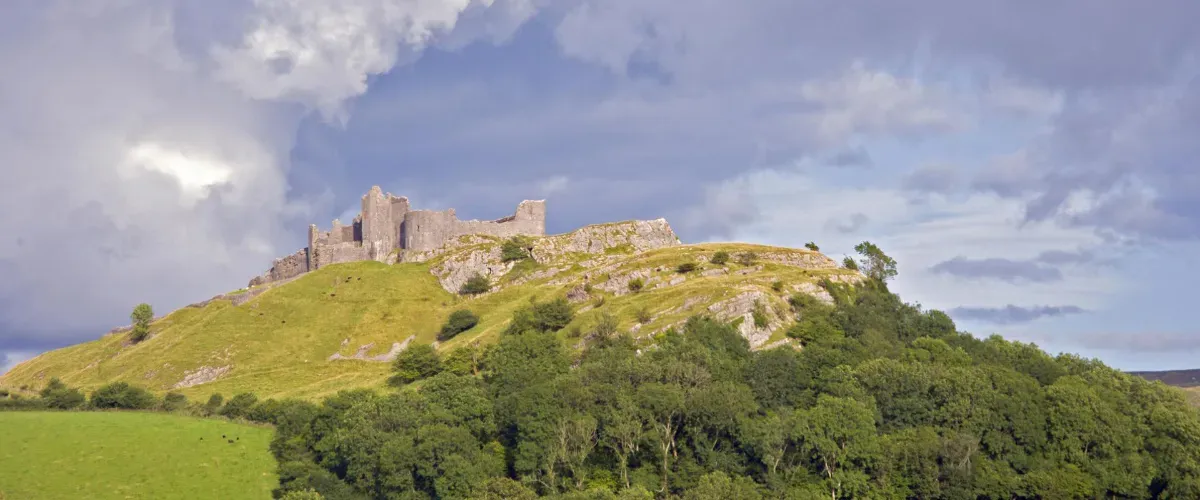The Debtors' Hideout: Our Time in Trapp

Escape to the Country (or Something Like It)
We moved to Trapp in Carmarthenshire from Blaenymaes when I was about 12, so around 1966. I'm not exactly sure why, but I suspect it had something to do with the economic situation — that is, my parents were skint and the bailiffs were becoming ever more determined to collect their debts. I don't even remember how we moved, though I vaguely recall a tipper truck being involved.
Note: Since writing this I've spoken with my brother Peter. He confirmed the use of a tipper truck and said the reason for the move was that we were evicted from the council house. Now, to get evicted from a council house takes a lot of effort, you'd have to been in enormous arrears with your rent, or have demolished the house or something. Apparently the very middle-class owners of the house were there to greet us. He says the horrified look on their faces when we arrived in the tipper truck with our belongings was something to behold.
The Village That Time Forgot
Trapp was (and still is) a tiny village. Back then it consisted of a bridge, a primary school, a pub, a post office, a telephone box, a grocery store and a few houses, and that was it. When I recently looked for images while writing this piece, I discovered the school, post office, and shop have all since closed.
A couple of miles away, perched on a crag, lie the ruins of the 13th-century Carreg Cennen Castle. The area was dotted with working sheep and dairy farms, and surrounded by the kind of hedge-lined roads where two cars could just about pass, assuming one of them had the patience to reverse into a lay by. God forbid you met a tractor.
Trapp was the perfect debtor's hideout. It sat about four miles from the nearest small towns, Ammanford, Llandybie, and Llandeilo and felt completely cut off from the world. For a family on the run from reality, it was ideal.
Maesyffynnon: Our Corner of Nowhere
The house my parents somehow managed to convince someone to rent to them was wonderful. It had probably once been a farm, there was a yard with a towering pine tree, a big barn, various outbuildings, and a broken-down hen-house. There was also a tiny farm labourer's cottage with one room upstairs and one down, no toilet, and no running water. They really knew how to treat their workers in the old days.
There was a cooking apple orchard with massive old trees, and behind the house lay a patch of uncultivated woodland. But the crowning glory, at least to me, was the rusted corpse of an old car, half-swallowed by brambles in the overgrown front garden.
The house was called Maesyffynnon, which we were told meant "Well in the Meadow" in Welsh. A beautiful name for what felt like our very own corner of nowhere. We never actually found a well, which was probably just as well, as discovering one would likely have involved one of us falling into it.
The Invasion
We descended upon this tranquil, idyllic, bucolic scene like Genghis Khan's Mongol Horde.
How Maesyffynnon Looks Today
I've had a look at the house on Google Street View as it stands today. It's changed dramatically. The front garden is much tidier and smaller than I remember. The outhouses, small greenhouse, and barns have gone, a new house has replaced them. I think the main house has been extended, but I'm not sure. I couldn't see the towering pine tree in the picture.
The other strange thing is that in my mind I remember it as having Tudor-style black and white panelling. There's no sign of that, so perhaps my memory is playing tricks on me. The house I remember was in a state of genteel disrepair — the one on Street View is much smarter and more respectable.
It seems our corner of nowhere has been thoroughly civilised.
What You'll Find Here
These stories will tell you about what happens when slugs meet boys with syringes, climbing pine trees in a frock, judging people by their hands and my love of Mars Bars, among other stories.
The stories aren't in chronological order — they're just the memories that surface when I think about those years in the Welsh countryside. Some are gentle, some are dark, all are true as I remember them.